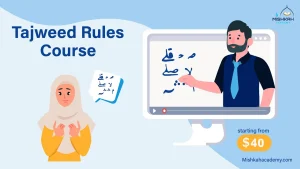How Long To Speak Read Arabic
Table of Contents
ToggleArabic has over 420 million speakers worldwide. It is the fifth most spoken language in the world, and it is also one of the oldest languages. As a result, it requires consistent practice and patience to become fluent in it. Learning to speak Arabic can be challenging, especially if you’re a native English speaker. The length of time it takes to become proficient in the Arabic language depends on several factors, including the learner’s commitment, motivation, and the method of learning.
The complexity of the Arabic language can make learning it time-consuming. Arabic has a different writing system, grammar, and pronunciation compared to the English language. Therefore, it may take an English speaker longer to learn it. According to the Foreign Service Institute, the average time it takes to learn Arabic is an estimated 2200 hours of classroom instruction to reach a proficient level. However, if you are committed to learning the Arabic language, you can reduce the time significantly by practicing every day and finding conversational partners.
Learning Arabic requires dedication and persistence, and it is an ongoing process. The amount of time it takes to learn Arabic varies based on the learner’s commitment, motivation, and focus. Nevertheless, being fluent in Arabic is an invaluable skill that can open doors to new opportunities and experiences in the Middle East. Whether you are planning to pursue a business career, travel, or live in an Arabic-speaking country, the time you invest in learning Arabic will be rewarding.
Start learning Arabic from the comfort of your Home with the Best Online Arabic School
Learn Quran, Arabic & Islamic Online
How hard is it to speak Arabic
Arabic is a language that has plenty of nuances and intricacies. For someone familiar with a Romance language or English, learning Arabic can initially be quite challenging. Part of the reason for this is the different script, with Arabic using a non-Latin alphabet of 28 letters. Additionally, many Arabic words are formed through the addition of prefixes or suffixes, which can significantly alter the perception of meaning. While it is possible to learn aspects of Arabic in a short period, becoming proficient in the language is a longer-term investment.
Grammar can pose a particular challenge for Arabic learners. Arabic grammar is very systematic, but it can be difficult to learn given that the fundamental rules and patterns rely on extensive memorisation. Pronouns, for example, are highly variable, and even more so than in English, they exhibit differences based on tense, person, and genderconjugation. Verbs are more complex and have several sets of prefixes and suffixes that add various shades of meaning.
Another challenge arises from the different regional dialects that exist throughout the Arab world. For example, the spoken language in Morocco can be entirely different from that in Egypt or Saudi Arabia. The different dialects in Arabic vary according to a range of factors such as accent, pronunciation, and vocabulary usage. This variation can make communication challenging and create impediments when trying to learn the language. However, as a learner familiarizes themselves with Arabic grammar and the language’s phonetic structure, the regional variations become more comfortable to understand.
Arabic Conversation Course
In today’s global society where the Middle East is gaining significance in the business world, speaking Arabic has become a valuable skill. A course in Arabic conversation can help learners gain confidence in speaking Arabic and help them understand Arabic culture. The course may touch on various aspects of Arabic, from colloquial and formal language to different dialects.
With the proliferation of online language courses, learning Arabic has become easier than ever before. There are many Arabic conversation courses available both online and offline, from basic to advanced levels. The course is designed to help learners articulate their thoughts and express themselves in Arabic effectively. For example, a beginner course in Arabic will teach the alphabet, basic grammar, and essential vocabulary, while an advanced course will focus on advanced grammar, conversation techniques, and nuances of the Arabic language.
In conclusion, learning Arabic conversation is a valuable skill to have in today’s multicultural world. The course helps learners develop an understanding of Arabic culture, and build confidence in their ability to communicate in Arabic. Whether you are a beginner or an advanced learner, there are various options available to help you master the language. With consistent practice and dedication, learners can become proficient speakers of the Arabic language.
FAQs
How long does it take to learn to speak Arabic fluently
Arabic is a language spoken by more than 400 million people worldwide, and it has a rich cultural and historical significance. The Arabic language is known to be one of the most challenging languages to learn, but the time it takes to speak Arabic can vary significantly depending on several factors. These factors include the student’s language background, the learning materials and resources used, and the level of proficiency being aimed for.
For individuals with no prior background in Arabic and the language’s distinct script, it can take between three to five years to achieve fluency. This estimate assumes regular and consistent practice and immersion in the Arabic language. However, it’s important to note that Arabic dialects vary regionally and can sometimes be vastly different from one another. Depending on the specific dialect one is trying to learn, the time required to achieve fluency can vary.
Furthermore, individuals who have prior knowledge of other Semitic languages, such as Hebrew or Amharic, may find that they can acquire fluency quicker than those without this background. The learning materials and resources used can also affect an individual’s language learning journey. Formal language classes that provide consistent instruction and opportunities to practice speaking, listening, reading, and writing in Arabic can help learners progress faster than those who use online resources alone. Ultimately, the time it takes to speak Arabic fluently depends on each learner’s unique background, method of instruction and practice, and the level of proficiency being aimed for.


























